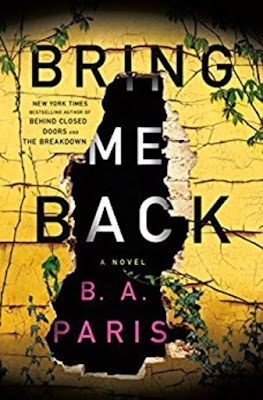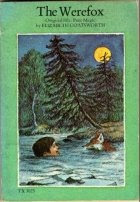90. mockingbird by Kathryn Erskine

mockingbird (mok'ing-burd) by Kathryn Erskine (Canada) - (USA)
Pages: 235 pages
Ages: 9+
Finished: May 23, 2010
First Published: Apr. 15, 2010
Publisher: Philomel
Genre: children, realistic fiction
Rating: 5/5
First sentence:
It looks like a one-winged bird crouching in the corner of our living room.
Acquired: Received a review copy from Penguin Group (Canada).
Reason for Reading: I have Asperger's and when I saw a book that featured a female protagonist with Asperger's I was elated and HAD to read the book.
I came away from this book very satisfied. As a female with Asperger's I felt that Caitlin was portrayed realistically. There can be wide differences in how males and females present and I think the author managed to bring those out in Caitlin, though the intense plot does put Caitlin in a situation above and beyond normal everyday life.
A small town has been devastated. The local junior high was hit by two gun wielding students who managed to kill one teacher and two students before the police shot one perpetrator and apprehended the other. One of the students who was shot is Caitlin's older brother, Devon. Their mother had died many years ago when Caitlin was a baby and Devon had really become her rock. He was a great big brother. He treated her well and knew how to deal with her as a person with Asperger's almost naturally. He'd tell her not to do stuff 'cause it wasn't cool or that people didn't like it when she did this or that and why and his advice helped her. Now Caitlin's world revolves around seeing a councilor daily at school, coping with her father's sudden crying sessions and missing Devon in her own way. People want her to be more emotional and show more empathy (traits those with Asperger's do not always appear to show) and Caitlin finally finds the word "CLOsure" and knows that is what both she and her father need.
The plot itself is well done. A small community coping with this horrible violence that has entered its once thought serene boundaries. The author shows the effect not only on the family of those murdered and the staff and students at the school, but staff at other schools, neighbours, and a boy who was the cousin of one of the killers. There is fear, disbelief, and togetherness but no anger as they bond to help the community as one, heal. Very-well done.
As to the Asperger's, from the author's note she does not outright say but it seems clear that either she or a loved one has an 'aspie' child and she is writing from experience. Caitlin is well presented as a female with Asperger's. The typical picture the public has of someone with AS is a science, math, computer geek and this is not wrong. These are often very strong interests in males (which doesn't mean some females will too) but typically females show their 'geekiness' in words and books. They are writers, bookworms, grammar police, etc. Caitlin here is an excellent student with great writing skills and a fascination with the dictionary, who keeps lists of words with the accentuated part in caps. Typical female AS behaviour. Caitlin has some meltdowns, fortunately the author doesn't over do them, as has been done in other books I've read. Girls are less likely to have seriously noticeable meltdowns and hyperactivity making the typical age of diagnoses around 16 rather 8 as in boys. Caitlin's two least favourite subjects at school are recess and PE. This really endeared her to me as those were my most hated subjects as well. There is this anxiety feeling you get in the pit of your stomach as an aspie and Caitlin associates this with recess so whenever she gets this feeling she will say she is feeling recessy or has the recess feeling. This beautifully describes an everyday symptom of Asperger's.
The main aspect the author emphasizes here though is the AS person's lack of ability to show emotion or empathy. I think Erskine does manage to show that while we do not show emotion it does not mean we do not feel emotion. Two very different points to keep in mind. Empathy is something that Caitlin herself struggles with and tries to understand and the whole book is a process for her in finding out how to show she has this to others and to understand herself, that she does. While many Asperger's people may lack emotion or empathy, I think the majority of us agree that we lack the ability to SHOW it, rather than that we do not feel the emotions or know how to feel them. I would also like to add my own bit of advice: Never *force* an Asperger's person to look you in the eye, it is akin to torture.
Anyway, I felt a lot of sympatico with Caitlin and the author in her ability to show a positive female character with Asperger's. My only negative is that *I* personally do not agree with the the medical methods being used to treat Caitlin.


Really awesome to read your review as someone with Asperger's. I hope you sent this to the author!
ReplyDeleteWhat a wonderful review! The book felt very real to me, but I wasn't sure since I don't know anyone with Asperger's that I'm aware of. I think it's really important to expose children to books like this.
ReplyDeleteI really enjoyed reading your thoughts, Nicola! Thanks for linking your review at mine! I'm somewhat relieved to know that this book matches your own experience--I hate to think a novel so well-received might be a misrepresentation. I'm curious about which part of Caitlin's treatment you don't agree with. I find the nontraditional view/ approach/ take on the world fascinating and enlightening.
ReplyDeleteThanks Amy. As to the treatment, it's been a while since I read the book so I can go inti detail point by point. But I didn't like the fact that she was even being treated for having Asperger's. I don't believe we need to be "normalized". Her brother's attitude was much more helpful than any therapy. I get the same sort of "clues" from my husband. Sometimes I take his advice into consideration, sometimes I don't.
ReplyDeleteNow many aspies have other psychological conditions ie. OCD, bi-polar, anxiety, panic attacks, etc. These need to be treated. But I am against having Asperger's itself treated. I cringed every time Caitlin was being told how to behave "normally". For example that passage you quoted where she teaches her to look in the eyes is torture for me. I don't look people in the eyes and would rather undergo torture at guantanamo than be subjected to that little lesson.
That's my opinion as an adult aspie and the mother of an autistic 11yo. There are other opinions; some parents want their children "normalized". I see our autistic traits as gifts. Sorry for the long answer. It is a topic close to my heart and you did ask. LOL